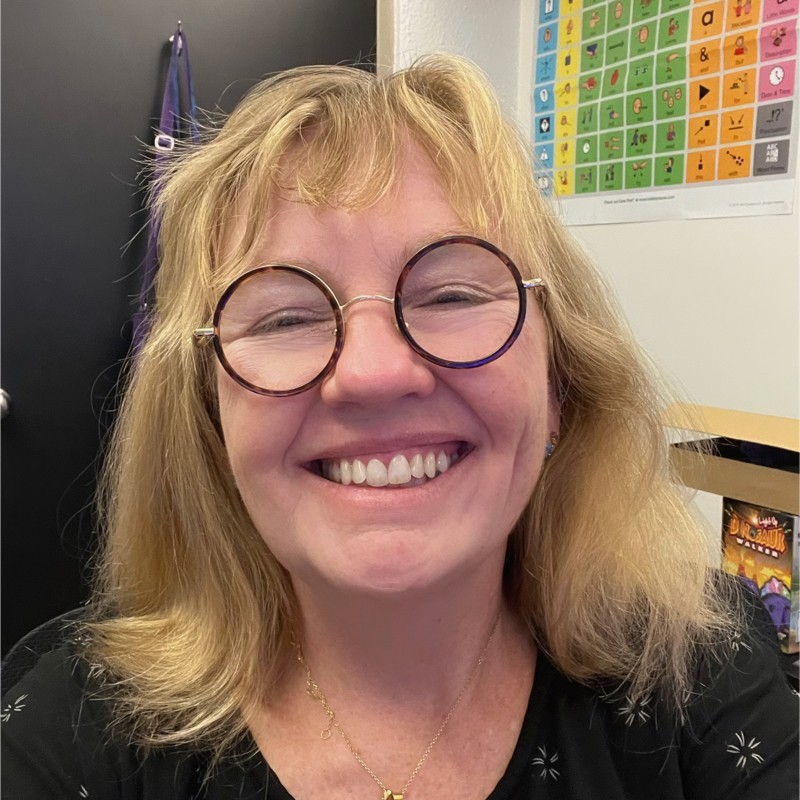Thinking Beyond K-12: AAC Use in Post-Secondary Studies and the Argument for Universal Design for Learning (UDL) (on-demand registration)
Thinking Beyond K-12: AAC Use in Post-Secondary Studies and the Argument for Universal Design for Learning (UDL)
Available May 21, 2024 – April 30, 2029 | 60 minutes | 0.1 ASHA CEUs
In this session, participants explored enhancing support for AAC users in higher education through Universal Design for Learning (UDL). They discovered how to adapt mobile technologies and learning management systems to offer diverse participation options. By embracing UDL, higher education can move beyond the medical model, accommodate diversity, and promote equity and inclusion.

Presenter: Kathryn Helland, MS, CCC-SLP
Relevant Financial Relationship: Kathryn receives a salary from Temple University.
Relevant Non-Financial Relationship: Kathryn has no non-relevant financial relationships to disclose.
Presenter Biography: Kathryn Helland, MS, CCC-SLP, is a clinical instructor in the Department of Communication Sciences and Disorders and a doctoral candidate. Before joining the department, Kathryn worked at Temple’s Institute on Disabilities, where she provided augmentative and alternative communication (AAC) services. She evaluated non-speaking adults and children receiving early intervention services. Kathryn helped to create online preservice training materials to support the education of speech pathology students on the topic of AAC. Kathryn’s areas of specialization include autism and the use of AAC in post-secondary educational settings. She is working on a doctorate in higher education and plans to study the impact of the need to request accommodations, under the ADA, on students with complex communication needs.
Learner Outcomes
- Learners will identify three ways in which high tech AAC may interface with university learning management systems (LMSs)
- Learners will identify three barriers to successful entrance to college for AAC users
- Learners will identify three ways in which the implementation of Universal Design for Learning (UDL) in higher education may increase equity for AAC users in higher education
Agenda
- The history of disabilities in higher education (15 minutes)
- The role of the ADA and the system of accommodations (15 minutes)
- What is UDL and how could this apply to the use of AAC in higher education? (10 minutes)
- Changes in technologies for AAC and higher education (10 minutes)
- UDL and the university learning management system (5 minutes)
- Continued barriers to access (5 minutes)
Cost: Free
Audience: Public/Consumers, Students, Early Career Professionals (under 5 years), Related Professionals
Topic Area: Augmentative and Alternative Communication, Autism Spectrum Disorder

To be eligible for ASHA CEUs, participants must complete the post-webinar assessment with 80% accuracy. Unlimited attempts are allowed. Partial credit is not available. The Assessment must be completed within one week of the end of the session.
Accessibility: Please email ableU@ablenetinc.com if you require any additional accessibility support. We will be happy to work with you!
Complaint: We strive to provide professional development that highlights today’s best practices. If you have complaints/concerns regarding ableU please contact ableU@ablenetinc.com. We will review the complaint or concern. When appropriate, we will take action to address the issue within 10 business days.
Refund: Refunds are not available for free sessions.
